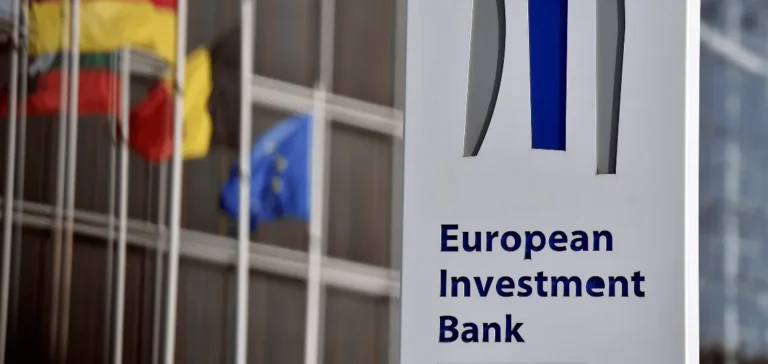The European Investment Bank (EIB) has announced the deployment of a €2bn ($2.18bn) financing package over two years to support renewable energy and power infrastructure projects across the African continent. This envelope is backed by public guarantees provided by the European Commission, under the NDICI–Global Europe external financing mechanism. The programme is part of the European Union’s (EU) Global Gateway strategy, aimed at expanding its economic and political footprint in key global regions.
A tool for projecting European influence
The EIB acts as the EU’s financial arm in a context of shifting international influence in Africa’s energy markets. Nearly 40% of its extra-EU investments are already directed toward Africa. The announced programme targets critical investments in renewables, electricity grids, and green hydrogen. The Commission’s guarantees enable the EIB to assume greater risk while maintaining its top-tier credit rating, thereby lowering borrowing costs for project developers.
Target countries selected for stability
Funding will be focused on states deemed politically stable, such as Morocco, Namibia, Kenya, Angola, and Egypt, effectively excluding countries under unconstitutional governance. This selection reduces execution risk and ensures the legal and financial feasibility of the projects. The EIB is working with regional African institutions such as Africa Finance Corporation (AFC) and the ECOWAS Bank for Investment and Development (EBID) to structure viable financial frameworks.
Geopolitical response to Chinese and US initiatives
The Global Gateway initiative positions itself as Europe’s alternative to large infrastructure programmes led by China and the United States. The financing aims to support regional power integration and strategic energy corridors, particularly for exporting green hydrogen. Europe thus seeks to secure preferential access to decarbonised energy molecules produced in Africa while reinforcing its role in the continent’s energy governance.
Technical structure and expected leverage
The programme aims for high financial leverage: each euro mobilised by the EIB could attract several more in private investment. Projects will typically be structured as public-private partnerships with independent power producers (IPPs) under long-term power purchase agreements (PPAs). By including transmission and distribution infrastructure, the EIB addresses bottlenecks that currently prevent the integration of additional renewable capacity in many African markets.
Expected effects on industrial value chains
European equipment suppliers could regain competitiveness in high-value-added technology segments such as high-voltage grids and wind power equipment. The EIB’s contractual and compliance standards may also help structure African markets by setting benchmarks for other lenders and investors. For local companies, increasing local content requirements offer opportunities for industrial integration and skills transfer.
Regulatory constraints and institutional environment
Access to financing is conditional upon compliance with European standards, particularly in environmental, social and governance (ESG) areas. This requires rigorous project selection and may result in longer structuring timelines. In addition, most loans are issued in hard currencies, exposing African borrowers to significant exchange rate risks, with no automatic hedging mechanism in place.
Political risks and limits of targeting
Excluding unstable countries may deepen regional disparities in electricity access, despite the fact that needs are greatest in those areas. Political risk, coupled with governance challenges facing African public utilities, could slow effective project deployment. The beneficiary countries’ ability to manage complex financial structures—incorporating guarantees, co-financing, and ESG clauses—will be key to implementing the announced commitments.






















